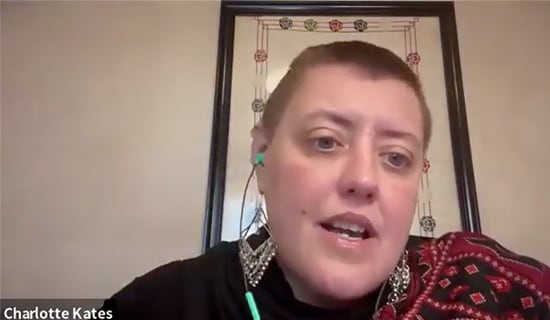Amid the severe economic crisis in Egypt,[1] the government of Egyptian President Abdel Fattah Al-Sisi continues to battle exploding population growth, considered to be one of the highest in the world. According to Egypt's Central Agency for Public Mobilization and Statistics, the population currently stands at about 105 million,[2] a rise of about ten million (over 10%) since 2017.[3] The issue of overpopulation has been of concern to the country for decades, and in 1975 the Population Council was established to tackle it.[4] Reducing the population growth rate is one of the goals set by the Egyptian government in its Vision 2030 plan, launched in 2016, aimed at improving the quality of life in the country.[5] While this rate has indeed dropped in the recent years – from 2.11% in 2016 to 1.6% in 2022[6]– it is unclear whether this is due to the Covid-19 pandemic or to the government efforts.[7] In any case, Egypt's Health and Population Minister Dr. Khaled 'Abdel Ghaffar noted that, despite the drop in the population growth, the country has not yet achieved a balance between the size of the population and the available resources.[8]
The importance of the issue and the gravity of the situation has become even clearer amid the severe economic crisis that afflicts the country and is depleting its resources even further. Government officials, from President Al-Sisi to the prime minister, the minister of health and population, and members of parliament, repeatedly stress that overpopulation is a central factor hindering the economic development that is crucial for Egypt, and that it constitutes a serious danger to the country, and call to reduce the birthrate.[9] Concurrently, the regime is working to raise awareness of the problem among the citizens by means of workshops and lectures in the villages and in schools and universities. As a practical measure, the government has recently decided to offer financial incentives to women who agree to have only two children.
Egypt’s religious establishment has also joined the efforts to reduce the birthrate, including Dar Al-Ifta, Egypt's official body for issuing religious rulings and its head, Egypt's Grand Mufti Shawki 'Allam, and to a certain extent also Al-Azhar, the leading religious institution of the Sunni world, headed by Sheikh Dr. Ahmad Al-Tayyeb. 'Allam and Al-Tayyeb have both proclaimed that Islam allows the use of birth control and does see population growth as an end in itself. Also part of the information campaign are Egyptian journalists and media figures, who warned that failing to tackle overpopulation would lead Egypt to disaster. Some even urged the government to emulate the Chinese model and pass laws to reduce the birthrate.
This report reviews the information campaign to lower the birthrate in Egypt and the efforts of the Egyptian government, media, and religious establishment to address this issue.
President Al-Sisi, Senior Government Officials: The Rapid Population Growth Is A Threat To The Country
During his years in power, President Al-Sisi has often addressed the danger posed by overpopulation in Egypt, and this year is no exception. For instance, at the Global Health, Population and Development Congress, held in Cairo on September 5-13, 2023, he stated that population growth is one of the gravest issues facing Egypt and warned about its potential impact on this country and the African continent as a whole. He stressed that “the annual population growth rate must remain at 400,000 in the next 20 years” in order to prevent a “catastrophe,” especially in light Egypt’s dire economic situation, and praised the Chinese model of population control, saying: “The Chinese adopted [the one-child policy] in 1968, and in 2015 China officially canceled this policy and allowed couples to have two children… This policy was a success.” He also came out against statements made by Egypt’s health and population minister, Khaled Abd Al-Ghaffar, who said that people are free to have children, commenting, “eventually society as a whole, and the Egyptian state, will pay the price.”[10]
On a visit to the Al-Buhayrah Governorate in mid-June 2023, Al-Sisi said: “In 1953 there were 19-20 million of us in Egypt… In the time of President Sadat we reached 40 million and in 2011 we were about 80 million. Today we are at 105 million… A baby is born about every 15 seconds, that is, four children every minute.”[11] In December 2022, at the inauguration of the new city of Mansoura, Al-Sisi warned that “the population growth will swallow the country” and urged all the state institutions to take part in curbing “this danger.” He noted that the high birthrate is a burden on the country's resources, which are already spread too thin, and that Egypt's annual per capita share of water, for example, has dropped to about 500 cubic meters, highlighting the vital need to reduce the population growth.[12]
Al-Sisi even attempted to provide religious justifications for limiting the birthrate. At the 2022 Egypt Economic Forum he remarked that “the correct understanding of the hadiths and [religious] texts is [that childbirth should be] within the limits of your [individual] capability, not in accordance with the capabilities of others or of the state…”[13]
In a speech he delivered at the 2017 Fourth National Youth Conference in Alexandria, Al-Sisi compared the danger posed by the rapid population growth to the danger of terrorism, saying: “The two [greatest] dangers Egypt has faced in its history are terrorism and its rapid population growth.” He added that overpopulation hinders opportunities for progress in Egypt: “When I see a citizen who has several children and isn’t able to provide for them, I say to him, 'Note that your responsibility before Allah to [provide for] these children takes precedence [even] to your duties towards the homeland. Are you economically able to provide for them properly? If not, you are doing them an injustice…' We must plan the birthrate so that it matches our capabilities. If we want to allocate resources to education, healthcare and job opportunities for young people we must curtail the population growth… Everyone must do his part [so we will able] to advance.”[14] Other senior Egyptian officials repeated these warnings. In February 2023, Egyptian Prime Minister Mostafa Madbouly referred to the birthrate as “a life-or-death issue,” especially in light of the global economic crisis resulting from the war between Russia and Ukraine.[15]
Dr. Muhammad Al-Wahsh, undersecretary of the Health Committee in the Egyptian parliament, cautioned that “the population growth in Egypt is detrimental to the country’s ability to achieve steady economic growth," and added: "The economic effects of population growth include a rise in consumption, in the cost of services in the country, and in unemployment, as well as lower salaries in the private and public sectors, rising housing costs, suburbanization of agricultural areas and the collapse of public services. If the natural population growth remains high, it will harm everyone, all families and sectors, and mainly large and poor families, who find it hardest to cope.”[16]
As mentioned, the issue of population growth was also debated in the National Dialogue talks that have been ongoing in Egypt since May 2023 between dozens of politicians, experts and public figures. They all warned of the danger it represents, and listed several main reasons for it, such as illiteracy, early marriage, high dropout rates in schools, child labor and the prevailing traditions. They proposed raising the minimum age of marriage, and encouraging lower birthrates in the villages and among vulnerable populations by means of information campaigns and women’s empowerment, and by developing a local birth-control industry.[17]
Government Initiatives To Reduce Birthrate: Information Campaigns In Villages, Financial Incentives For Women Who Agree To Have Only Two Children
In an attempt to reduce population growth, the Egyptian authorities have introduced several initiatives. In February 2022, for example, the Egyptian Ministry of Planning and Economic Development launched “the National Plan for the Advancement of the Family,” aimed at lowering the birthrate. In the education sphere, the plan includes information campaigns, with the cooperation of religious clerics, in villages and in schools and universities across Egypt, including as part of courses for couples registering to marry. In the health sphere, the plan calls for expanding prenatal healthcare, and in the economic sphere, it includes employment and empowerment initiatives for women, to promote their financial independence, as well as financial incentives for women who agree to have no more than two children.[18]
Parts of this program are already being promoted. For instance, in March 2023, Finance Minister Mohamed Maait and Planning and Economic Development Minister Hala Helmy Elsaid signed a protocol, in the presence of the Prime Minister, for reducing the birthrate. According to the protocol, the state will grant 1,000 Egyptian pounds annually to every married woman aged 21-45 who agrees to have only two children. The money will be deposited in a special savings account. If the woman has a third child she will forfeit it, but if she does not, she will gain access to the full amount at the age of 45.[19]
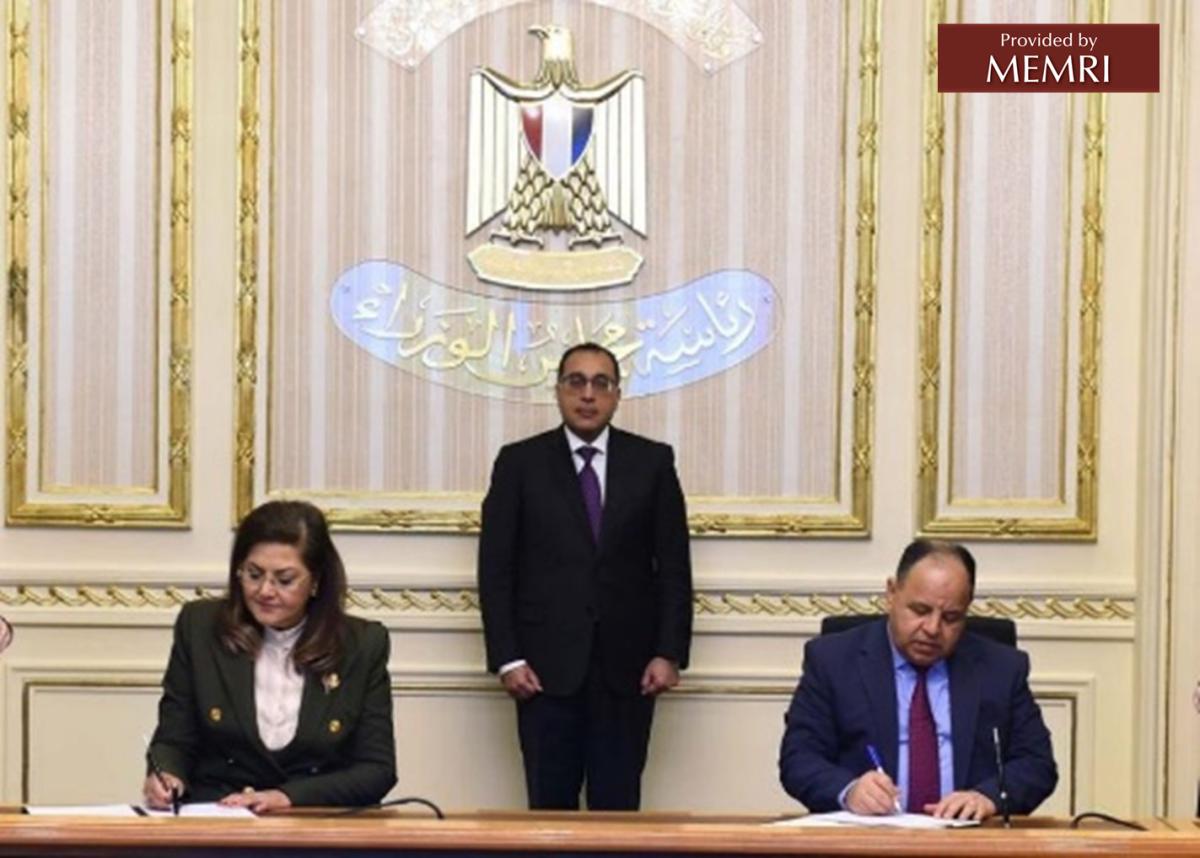
The government ministers sign the protocol to encourage a reduction in the birthrate, in the presence of the prime minister (Image: Facebook.com/EgyptianCabinet, March 14, 2023)
This initiative joins another plan to reduce the birthrate, launched in 2018 under the name “Two is Enough.” Sponsored by the Ministry of Social Solidarity and partially funded by the United Nations Population Fund, this plan operates mainly in Egypt's ten poorest governorates (Al-Buhayrah, Al-Giza, Al-Faiyum, Beni Suef, Al-Minia, Assiout, Souhag, Qena, Luxor, Aswan) and targets women aged 18 to 49. Its goal is to reduce the birthrate in these governorates by means of a door-to-door information campaign and by referring women to free family planning clinics where they can receive birth control and prenatal care.[20]
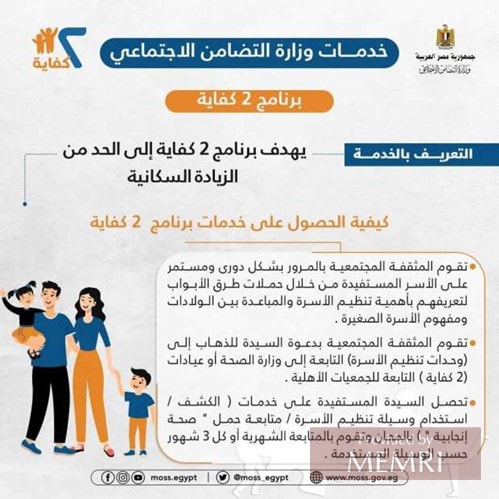
Ministry of Social Solidarity poster promoting two children per family, as part of the “Two Is Enough” campaign (Source: Al-Watan, Egypt April 26, 2022)
In addition, the local government and various government ministries, including the Endowments Ministry and bodies connected to Al-Azhar, hold conferences, lectures and courses, primarily in the most vulnerable areas, focusing on the issues of illiteracy, school dropout and underage marriage, which are considered to be among the main reasons for the high birthrate.[21] During a parliamentary debate in April 2022, Minister of Endowments Mohamed Gomaa said that more than 80,000 imams had been trained to address this issue and that his ministry had organized 3,617 lectures about the issue of the high population growth.[22]
It was recently reported that government and parliamentary circles are considering raising the legal age of marriage in Egypt, which is currently 18. Dr. Makram Radwan, a member of the Health Committee in the Egyptian parliament, proposed raising the minimum age of marriage to 20, so as to address the problem of early marriage, which he considers to be a major factor in the rapid population growth.[23] MP Amira Al-'Adly, who is involved in the National Dialogue, noted that every one-year raise in the minimum age of marriage is likely to reduce the birthrate by two million, and called to criminalize underage marriage.[24] The representative in Egypt of the United Nations Population Fund, Hala Yousuf, said that the fund supports raising the minimum age of marriage in Egypt. She added that potential measures for achieving this were being examined, along with ways to implement them, since even today the law banning marriage under the age of 18 is not fully enforced.[25]
Religious Establishment Joins Struggle: Couples Are Allowed To Remain Childless; Islam Permits Using Birth Control
As previously mentioned, the religious establishment has also joined the struggle to reduce the birthrate, and senior Egyptian clerics have asserted that Islam permits the use of birth control measures. In fact, in 2003 the Al-Azhar Islamic Research Academy had already determined that family planning and the use of birth control were permissible and that no texts in the Quran or the Sunna forbade them.[26]
Egyptian Grand Mufti Shawki 'Allam, the head of Dar Al-Ifta, Egypt's official body for issuing religious rulings, reiterated this position in various forums and on various platforms. He also clarified that family planning is necessary, because the high natural birthrate hinders economic growth in the country. For example, during a January 2022 debate in the Parliamentary Committee for Health and Population, he asserted, “The use of medical birth control measures to battle overpopulation is permitted and does not harm the family or the woman. Some families do not take proper care of their children after they are born and this is true injustice, which harms the coming generations.”[27]
In statements he made in March 2022 he pronounced it permissible to delay having children for economic reasons, saying: "A husband and wife may agree to make temporary use of permissible birth control methods until the family has the means to properly raise another child…"[28]
Furthermore, in reply to a question, Dar Al-Ifta, the institution headed by Grand Mufti 'Allam, stated that a married couple is permitted to remain permanently childless. It said: "A couple has the right not to have children. They are permitted to take this decision if it serves both their interests… [although] this permission is granted only at the individual level, [not at the level of the Islamic nation as a whole]."[29]
The Mufti repeated these statements in an article he published in May 2023 in the Egyptian state daily Al-Ahram, writing: "The problem of overpopulation is one of the main factors that impede countries and governments as they try to implement serious development plans, in particular those [countries] that suffer from a shortage of natural resources to begin with. Overpopulation is the main cause of a large number of social, economic and health problems... It is also a direct cause of the worsening unemployment and water crises and of poor public services, [especially] health and education services...
"Examining the consequences of uncalculated and unrestrained population growth, especially in view of the paucity of resources, we conclude that the Shari'a cannot [possibly] support limiting people's ability to receive adequate healthcare or education worthy of Allah's deputies on earth [i.e., human beings]. [Nor can the Shari’a support] people suffering just to obtain adequate food and shelter. Birth control is nothing new; on the contrary, contraceptive measures were known in ancient times. It is said that, in the Prophet's time, his Companions used the method of coitus interruptus with their wives, and that he was aware of this and did not forbid it... There is a near-consensus among the religious scholars of the [various] schools [of Islam] that this method, aimed at preventing the sperm from meeting the egg, is allowed if both partners agree on it…"
The Mufti came out against fatwas calling for unrestrained reproduction, explaining that Islam does not regard population growth as an end in itself and that a small, high-quality community of believers is better than a large but low-quality community. He wrote: "Fatwas play a pivotal role in this context, especially considering the multitude of deceptive and deviant fatwas that spread misconceptions leading to overpopulation... The correct fatwa explains that rapid [population growth], advocated by those who preach indiscriminate reproduction, is not at all the intention of the Shari’a, which never condoned this [phenomenon] in itself. On the contrary, the Quran emphasizes that a minority can achieve victory through true faith, good training and taking all [the necessary] measures. Allah praised the small group that waged the Battle of Badr,[30] when the true-believing Muslims built the foundations of their state and culture over the ruins of larger civilizations."[31]
The Mufti and the institution he heads are even promoting an amended interpretation of the well-known hadith: "Marry and multiply so that I will boast about you [before] the nations on the Day of Judgment." Many people, they say, understand this to mean that the Muslims must multiply and make Allah proud by achieving great numbers; however, the hadith actually encourages the Muslims to make Allah proud by attaining vast knowledge and making many achievements -- i.e. through quality not quantity.[32] In addition, the Ministry of Social Solidarity and Dar al-Ifta are working together to "correct religious misconceptions about family planning." Dar Al-Ifta published a book on this subject, titled Limiting and Planning Childbirth in Islam," which was presented at the 2021 Cairo Book Fair.[33]
Dar Al-Ifta, headed by the Mufti, is thus complying with the demand that President Al-Sisi has been presenting to the religious establishment for years: It is working to renew the religious discourse and advance modern interpretations of religious concepts and of the Quran and the Sunna.[34]
Al-Azhar too permits family planning, but statements by its officials indicate that it takes a more conservative approach. In February 2015, in response to a question from President Al-Sisi, Al-Azhar Sheikh Ahmad Al-Tayyeb ruled it permissible for parents of two children to postpone having a third, and for parents of three children to decide not to enlarge their family.[35] Some Al-Azhar clerics reiterated this position in the recent months. One of them, Abraham Rada, emphasized that family planning has existed since the days of the Prophet. However, Dr. 'Abd Al-Mun'im Fuad, a lecturer on religion and philosophy at Al-Azhar University, said that, although family planning is indeed allowed and is recognized by the Shari'a and the Quran, fear of poverty is not a legitimate reason to avoid having children.[36] Journalists and MPs implicitly criticized Al-Azhar, calling on it to take a clearer stance.[37]
Egyptian Press: Overpopulation Is Egypt’s Gravest Problem
The Egyptian media likewise addressed the need to lower the birthrate and the need for information campaigns to raise awareness of this serious problem. Stressing the need to change religious and social attitudes in Egyptian society, articles in the press called to adopt an enlightened religious discourse that allows family planning, avoid “mistaken” religious perceptions that encourage overpopulation, and dispel the social belief that large families are more robust and can more easily make a living. Some even called to learn from the Chinese model and ban having more than two children.
Head Of Supreme Council For Media Regulation: We Need Determined And Strict Measures Against Overpopulation
The head of Egypt’s Supreme Council for Media Regulation,[38] Karam Gabr, noted that one of the reasons for the population explosion in Egypt is the adoption of mistaken religious perceptions and fatwas that encourage having large families. He wrote in the daily Akhbar Al-Yawm: “Egypt can’t possibly follow the example of certain countries that were forced at certain times to adopt compulsory sterilization as a way to combat torrential population growth. What we [Egyptians] need is ‘mental sterilization,’ namely to raise awareness by causing the families that [tend to] have the most children to realize that this [actually] harms them and depletes the resources of their state.
“If the birthrate remains at its present rate, [Egypt’s] population will reach 120 million people in 2030 and 150 million a decade later… Media campaigns [on this issue] are very important… but even more important is to [promote] an enlightened religious discourse that raises awareness, amends the mistaken understanding of religious concepts and fights the buildup of [mistaken beliefs].
“The reasons for the population explosion are many. First, the mistaken religious perceptions that infiltrated the country in the 1970s, when many [Egyptians] who had immigrated to the Gulf came back and spread fatwas that encourage having many children even in the absence of the ability to provide for them. Second, the method of ‘having children and then throwing them out on the street’: Many poor families that cannot provide for themselves think that having many children will help them to do so, and that is why we see penniless families with seven or eight children. Third, thanks to free education and healthcare, and food stamps, poor families do not bear the burden of overpopulation, whereas middle class [families] behave prudently.
“The solutions are hard and require difficult but firm measures, such as limiting the food stamps [given] to new families to only two children… In order to live in dignity, the new children [being born] need healthcare, vaccinations and milk, and [in the future they will need] a place in school and university, and a job…
“Egypt’s population grows annually by a number that could populate a [whole new] country. We must recognize that the previous family planning campaigns were not sufficiently effective because the prevailing perceptions are more influential and powerful.”[39]
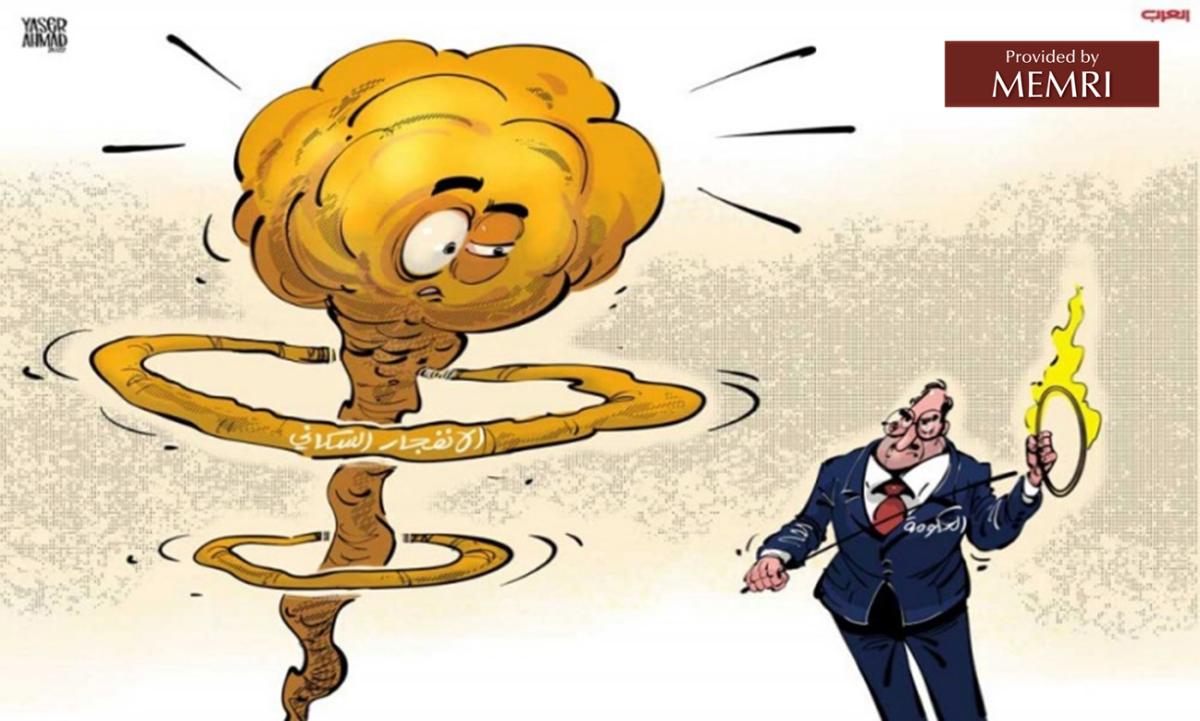
The Egyptian “government” is unable to tame the “population explosion” (Al-Arab, London, March 11, 2022)
Former MP: Overpopulation Is the Root Cause Of Egypt’s Difficulties
Former MP Moustafa Elfeki argued, in his column in Al-Ahram, that Egypt should be a welfare state, but one in which families have children only if they are able to provide for them. He wrote: “Presidents and experts debated and agreed unanimously that the population explosion is the root cause of all the problems of the Egyptian homeland. Efforts and funds have been invested [in this issue], institutions have been founded [to tackle it] and many studies and treaties have been devoted [to it], yet the problem persists and devours every profit yielded by the [economic] growth…
“The problem persists for several reasons…:
“1. A mistaken perception of the position of the various religions on [the issue of] population… Religions want people to have a good life here on earth…. Islam has nothing to do with population growth. On the contrary, it calls for limiting population growth and for planning the family based on material and spiritual needs. Al-Azhar and the various religious institutions have positive views on this issue.
“2. The Egyptian father entertains the delusional notion that having a large family means more working hands that will yield quick profits and make him happy. He does not understand that this is a crime against the boys and girls whom [he] brings [into the world] without preparation or forethought. Can a father be happy when his sons and daughters are miserable, the family is torn and his abilities are eroded, and not [recognize the need] to end this farce that has become prevalent and has caused Egypt’s population to grow fivefold in a single century[?] The situation requires serious and thorough consideration, so as to end the Egyptian suffering, [caused by the fact that] the Egyptian population grows every year by a number of people that could populate a small country…
“3. Many Egyptians [also] entertain the delusional notion that Egypt’s [leading] role in the region stems from the size of its population, but that is not the case. Egypt’s value stems from… its strategic characteristics: its soft power, its glorious history, and its unique geographical location at the northeast corner of the African continent, overlooking both Asia and Europe… There are many countries with a small population that have great influence over their neighbors. Humanity’s future depends on quality, not quantity…
“4. Having children is a natural human right, as long one’s abilities and the conditions in one’s surroundings [allow this]. I am among those who believe that the decision to have children is almost political, given the current relationship between the resources [of the state] and the needs. Moreover, attaining [a population] of the ideal size requires a vision of plenty and the ability to actively promote a welfare society instead of dividing the sources of livelihood among a vast number of people. This is not the first time I have sounded the warning bell. Many lecturers on human geography and sociologists… have done so as well, and it has been proven to all that human superiority stems from common sense, not from [population] growth…”[40]
Senior Media Figure: Limit Families To Two Children
Hamdy Rizk, the former editor of Al-Ahram, wrote that the Egyptian’s disregard of the problem of overpopulation is a disaster that will lead to further crises, and called to limit families to two children: “On March 31, 2023, the ‘population clock’ [displayed on the outer wall of the Central Agency for Public Mobilization and Statistics in Cairo] showed that Egypt’s population had grown by 750,000 people in 180 days. That is, an increase of 125,000 per month, 4,166 a day and four every minute. This alarming, record-breaking number of new babies means that the population growth rate is insane and that the population is literally exploding. These figures are very worrying for anyone concerned about the future of the country. The population clock does not lie or prettify [reality]… It is sounding a warning bell about the population explosion… If we maintain this growth rate of millions every year, woe betide the homeland.
“Egypt is a large country that gives birth every year to another small country with a population of well over two million... The crisis will grow as long as we fail to acknowledge it and tackle it properly. This situation can become a disaster, and the disaster will beget more crises. Why do we disregard the population bomb?... With this population growth rate, Egypt is on the verge of certain disaster. The population clock is not a decoration… It is a warning bell that is warning the people, yet the people ignore it. I fear the day when the country will no longer be able to contain this number [of people]… The certain way to avoid the coming disaster, according to Prime Minister [Mostafa] Madbouly, is to implement a ten-year plan focusing on limiting families to two only children. The recipe is easy, but the task is impossible…”[41]

The 'population clock' on the wall of the Central Agency for Public Mobilization and Statistics in Cairo (Image: Al-Masri Al-Yawm, Egypt, June 22, 2022)
Egyptian Journalist: We Should Learn From The Chinese Model Of Population Control
Journalist Yasser ‘Abd Al-‘Aziz called to learn from the Chinese model of population control in order to curb the birthrate. He wrote in his column in the Al-Watan daily: “China’s success in controlling its population growth is the result of political planning and action. This is what enabled China to change its demographic policy more than once, based on an assessment of the challenges posed by its [population growth]… China is considered to be the most prominent world country that has successfully dealt with the problem of overpopulation. In 1979 the Communist Party passed the one-child law, and then adopted the series of measures and sanctions that comprised its so-called ‘family planning policy.’ As part of this policy, citizens were required to have only one child. If they had more they were hit with taxes that could amount to 50% of their income, and were also fired from their jobs or deprived of other means of support. This Chinese policy, which continued until 2013, was very successful, and the Chinese people’s income and living standards rose… Hundreds of millions of people were extricated from poverty, and public services improved. At that point the state eased the limits on reproduction…
“This is a clear example of how a state must act to combat this demographic problem… In March [2023] the Egyptian government announced that it would grant 1,000 Egyptian pounds [a year] to any married woman who agreed to have no more than two children, and that she would be able to collect the money at the age of 45. This policy is a step in the right direction, but it is not enough and must be reinforced. Fixing the demographic situation in Egypt requires further effective initiatives and decisions expressing a policy of limiting the birthrate and deterring those who have too many [children].”[42]
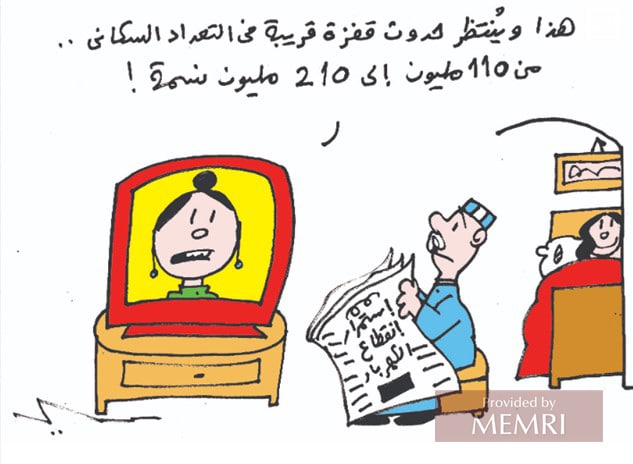
The Egyptian citizen is beset with crises: While the paper announces “ongoing power outages,” a news presenter announces that “the population is expected to grow from 110 million to 210 million” (Al-Masri Al-Yawm, Egypt, July 26, 2023)
* B. Chernitsky is a research fellow at MEMRI.
[1] On the economic crisis, see MEMRI Special Dispatch No. 10605, Egyptian Journalists Criticize Regime's Economic Policy: Poverty Is A Ticking Bomb; Even The Middle Class Has 'Supermarket Blues', May 11, 2023.
[2] Facebook.com/CAPMASEG, August 24, 2023. It should be noted that non-Egyptian sources have Egypt’s current population at 112 million (Macrotrends.net; worldometers.info/world-population/egypt-population).
[3] Sis.gov.eg/Story/9/Population?lang=en-us, October 1, 2017.
[4] On this see MEMRI Inquiry & Analysis Series No. 1285, Egyptian Economic Crisis Leads To Increased Calls To Reduce The Country's Birthrate, December 5, 2016.
[5] Presidency.eg/ar.
[6] Data.worldbank.org, worlddata.info.
[7] Al-Yawm Al-Sabi’ (Egypt), July 26, 2023.
[8] Al-Sharq Al-Awsat (London), July 31, 2023.
[9] The issue was also debated as part of Egypt's National Dialogue, launched in May 2023, in which politicians and experts from the coalition and opposition seek to reach joint conclusions in political, economic and social domains. The dialogue participants called to formulate a policy to tackle population growth (Akhbar Al-Yawm, Egypt, May 25, 2023).
[10] Raialyoum.com, September 5, 2023.
[11] Cairo24.com, June 14, 2023.
[12] Al-Sharq Al-Awsat (London), December 3, 2022; December 2, 2023.
[13] Sis.gov.eg, October 25, 2022.
[14] Al-Masri Al-Yawm (Egypt), July 24, 2017.
[15] Al-Yawm Al-Sabi’ (Egypt), February 22, 2023.
[16] Al-Yawm Al-Sabi’ (Egypt), August 22, 2022.
[17] Akhbar Al-Yawm (Egypt), May 25, 2023.
[18] Mped.gov.eg, February 28,2022.
[19] Al-Masri Al-Yawm (Egypt), March 14, 2023. The idea of encouraging two children per family had already been proposed in 2016; see MEMRI Inquiry & Analysis Series No. 1285, Egyptian Economic Crisis Leads To Increased Calls To Reduce The Country's Birthrate, December 5, 2016.
[20] Al-Watan (Egypt), April 26, 2022; moss.gov.eg, Al-Yawm Al-Sabi’ (Egypt), August 30, 2022.
[21] Al-Masri Al-Yawm (Egypt), July 22, 23, 2023.
[22] Al-Watan (Egypt), April 10, 2022; for more remarks by the Minister of Endowments on this topic see Al-Yawm Al-Sabi' (Egypt), March 3, 2022.
[23] Elbalad.news, July 30, 2023.
[24] Al-Masri Al-Yawm (Egypt), May 25, 2023.
[25] Al-Arab (London), June 5, 2023.
[26] Al-Sharq Al-Awsat (London), March 11, 2003
[27] Al-Masri Al-Yawm (Egypt), January 3, 2022.
[28] Al-Yawm Al-Sabi' (Egypt), March 9, 2023.
[29] Al-Dustour (Egypt), November 16, 2022; Facebook.com/EgyptDarAlIfta, November 22, 2022.
[30] A battle in 624 CE in which the Prophet Muhammad's forces defeated a much larger force of Meccan polytheists.
[31] Al-Ahram (Egypt), May 21, 2023.
[32] See e.g., Al-Masri Al-Yawm (Egypt), elbalad.news, August 28, 2022.
[33] Al-Yawm Al-Sabi' (Egypt), August 30, 2022; Al-Masri Al-Yawm (Egypt), July 21, 2021.
[34] Conversely, Al-Azhar, the leading religious institution in the Sunni Islamic world, and its head Ahmad Al-Tayyeb have for years been refusing to cooperate with the regime's initiative to renew the religious discourse. This has frequently led to clashes between Al-Sisi and Al-Azhar; see MEMRI reports: Inquiry and Analysis No. 1505 – Dispute At Al-Azhar's 'International Conference On The Renewal Of Islamic Thought' Reflects Institution's Long-Standing Rejection Of Religious Reforms In Egypt, March 20, 2020; Inquiry and Analysis No. 1542, Sheikh Of Al-Azhar Provides Support For Extremist Islamists In Europe: Muslims Must Give Their Souls In Defense Of The Prophet; Islam Commands Us To Love Muhammad And Jihad More Than Our Own Families , November 12, 2020; Inquiry and Analysis No. 1326, In Egypt, Clashes Between The Institution Of The Presidency And The Institution Of Al-Azhar, August 21, 2017; Special Dispatch No. 6585, 'Al-Ahram' Columnist: Despite Al-Sisi's Call For Revolution In Religious Discourse, Al-Azhar Scholars Continue On Their Extremist Path, August 24, 2016; Special Dispatch No. 6114 - Egyptian Columnists On Al-Sisi Regime's Campaign For 'Renewal Of Religious Discourse' As A Way Of Fighting Terrorism – July 23, 2015.
[35] Copts-united.com, February 2, 2015.
[36] Akhbar Al-Yawm (Egypt), February 2, 2023.
[37] For example, in his July 11, 2022 column in the daily Al-Masri Al-Yawm, Hamdi Rizq urged Al-Azhar's Council of Senior Scholars to endorse Dar Al-Ifta's interpretation of the hadith calling to "Marry and multiply so that I will boast about you [before] the nations on the Day of Judgment." MP Amira Al-'Adly likewise directed implicit criticism at Al-Azhar when she noted that the discourse of the religious establishment, headed by Al-Azhar, is at odds with the discourse of the government. Conversely, Dr. Gamal Abu Al-Serour, head of Al-Azhar's International Islamic Center for Population Studies, stated that there is no disagreement between the religious establishment and the political leadership, considering that Al-Azhar conducts awareness campaigns on all these issues (Al-Masri Al-Yawm, Egypt, May 25, 2023).
[38] On this body see MEMRI Inquiry & Analysis Series No. 1456 - Egyptian Regime Continues Takeover Of Media, Suppression Of Criticism – May 20, 2019.
[39] Akhbar Al-Yawm (Egypt), June 19, 2023.
[40] Al-Ahram (Egypt), July 18, 2023.
[41] Al-Watan (Egypt), April 19, 2023.
[42] Al-Watan (Egypt), April 24, 2023.


